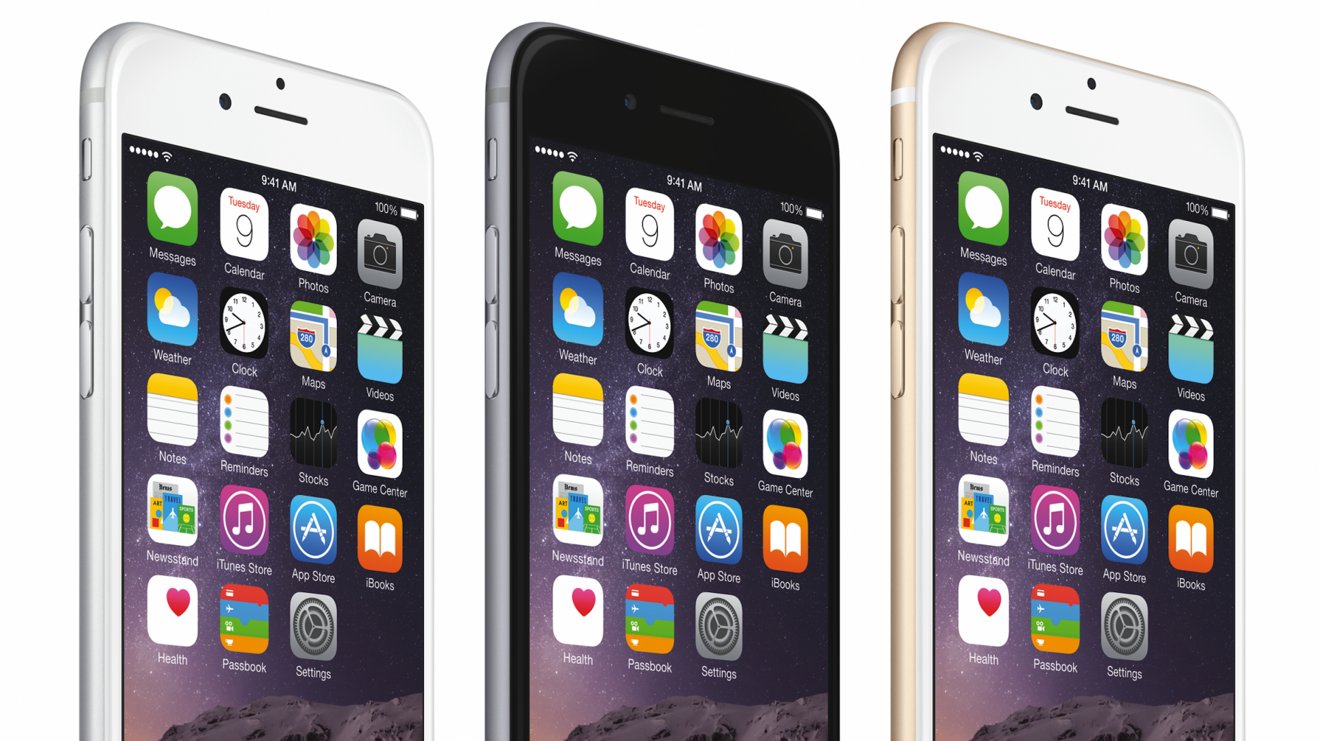The Chinese government's decision to deliberately devalue the yuan on Tuesday could have a serious impact on sales of the iPhone and other Apple products, but under the right conditions prove a boon to suppliers like Hon Hai/Foxconn and Pegatron, analysts said.
Sales of Apple products are likely to be hit at first because of weaker consumer demand, and then possibly by Apple deciding to raise prices if another yuan adjustment takes place, Fubon analyst Arthur Liao told the Wall Street Journal.
The iPhone is already an expensive product in China. An unlocked, 16-gigabyte iPhone 6 is priced at RMB 5288 ($836), or $187 more than the same hardware in America. Further devaluation could prompt Apple to hike prices to maintain profits, but potentially at the expense of selling fewer units.
Apple's suppliers stand to benefit though, assuming revenue doesn't change and the perks aren't passed along to Apple, Sanford C. Bernstein analyst Alberto Moel explained to Bloomberg.
Companies like Foxconn pay their workers and local suppliers in yuan, but much of their income is in U.S. dollars. Moel estimated that Foxconn's gross margins could rise by half a percentage point.
"A yuan cut is going to soften the impact of Apple's weak outlook because if there's no room to boost top line, then at least the currency change can help their bottom line," the analyst added.
China is Apple's next-most important market after the U.S. — during the June quarter, regional revenue was up 112 percent year-over-year to over $13.2 billion. Global iPhone sales did not meet high analyst expectations though, and iPad sales continued to decline. Any setbacks in China could further harm Apple's forecasts.
 Roger Fingas
Roger Fingas








 Charles Martin
Charles Martin

 Malcolm Owen
Malcolm Owen
 William Gallagher
William Gallagher

 Christine McKee
Christine McKee
 Wesley Hilliard
Wesley Hilliard








26 Comments
Moneyed people will have no problem paying Apple's price, no matter what happens to markets and exchange rates.
Once again, problems in China only affect Apple.
[quote name="jungmark" url="/t/187670/chinas-yuan-devaluation-could-hurt-apple-sales-boost-supplier-profits-analysts-say#post_2759279"]Once again, problems in China only affect Apple.[/quote] Yep. The gains of yesterday almost completely erased so far.
[quote name="jungmark" url="/t/187670/chinas-yuan-devaluation-could-hurt-apple-sales-boost-supplier-profits-analysts-say#post_2759279"]Once again, problems in China only affect Apple.[/quote]For Apple it is now their biggest revenue driver isn't it? More important to the bottom line than US sales? Seem to recall Cook (or someone at Apple) saying so recently tho I could be mistaken.
Moneyed people will have no problem paying Apple's price, no matter what happens to markets and exchange rates.
I agree. Isn't this middle class segment 800 million people? And aren't more entering that stratum constantly? Apple is a premium brand. If you're already planning to buy a premium brand, a slight price change isn't going to do much to dissuade you. The demand curve is a lot more inelastic than for brands like Xiaomi.